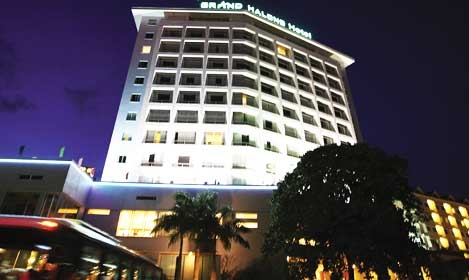Hotels taking the middle ground will strike it rich
 |
| More tourists and business travellers are choosing to stay in mid range boutique hotels |
In a recent report released by Grant Thornton Vietnam, three-star hotels’ occupancy increased 2.1 per cent, while five-star hotels’ occupancy decreased by an average of 6.3 per cent and four-star hotels occupancy down 14.1 per cent.
Robert McIntosh, executive director of Singapore-based CBRE Hotels, told VIR that there was a real opportunity for budget hotels.
“The demand is for sure, especial there is big demand for economic and budget hotels. For many people who could afford higher charge, staying at a budget and economic hotel is an experience which they like to take, something very unique for a traditional country like Vietnam,” McIntosh said.
He added that the economy was changing fast and it was less risky for investors to build a mid-range than luxury hotels.
“That is why I think this type [budget and economic hotels] will be developed much in the next few years,” McIntosh said.
He said that Vietnam was still a young and attractive market for new developments and unique products.
There are still a number of unexplored opportunities with great potential for new products. “The economy or budget hotel properties in Vietnam are still independently operated with limited managerial control, weak branding recognition, and no standard design or services,” he said.
“With room rates in the budget sector as low as $20 to $30 per night, you have to make sure that your costs are well controlled,” he stressed.
Five-star hotels had suffered most average room rate decrease of 33.5 per cent during 2009, pressured by consequences of the global financial crisis.
Pressure was felt across the board, with reductions in room rates, occupancy and profits by most participants in the industry.
The revenue per available room (RevPAR), one of a standard industry measure of hotel utilisation and return, showed an overall decrease from $68.5 previously to $44.63 in 2009, a reduction of 34.8 per cent. The decrease mostly happened in five and four-star hotels with 37.7 and 24.3 per cent respectively.
However, the RevPAR for three-star hotels increased 0.9 per cent in 2009, again reflecting the more resilient nature of the mid-market during the year.
One of the main reasons for the better business of three-star hotels, Grant Thornton said, was due to the increase of domestic visitors across the country.
According to the Vietnam National Administration of Tourism, the number of domestic tourists reached 17 millions in the first six months of this year, an increase of more than 30 per cent year-on-year.
What the stars mean:
★ Poor ★ ★ Promising ★★★ Good ★★★★ Very good ★★★★★ Exceptional
Latest News
More News
- Real estate investment trusts pivotal for long-term success (February 02, 2026 | 11:09)
- Dong Nai experiences shifting expectations and new industrial cycle (January 28, 2026 | 09:00)
- An Phat 5 Industrial Park targets ESG-driven investors in Hai Phong (January 26, 2026 | 08:30)
- Decree opens incentives for green urban development (January 24, 2026 | 11:18)
- Public investment is reshaping real estate’s role in Vietnam (January 21, 2026 | 10:04)
- Ho Chi Minh City seeks investor to revive Binh Quoi–Thanh Da project (January 19, 2026 | 11:58)
- Sun Group launches construction of Rach Chiec sports complex (January 16, 2026 | 16:17)
- CEO Group breaks ground on first industrial park in Haiphong Free Trade Zone (January 15, 2026 | 15:47)
- BRIGHTPARK Entertainment Complex opens in Ninh Binh (January 12, 2026 | 14:27)
- Ho Chi Minh City's industrial parks top $5.3 billion investment in 2025 (January 06, 2026 | 08:38)

















 Mobile Version
Mobile Version